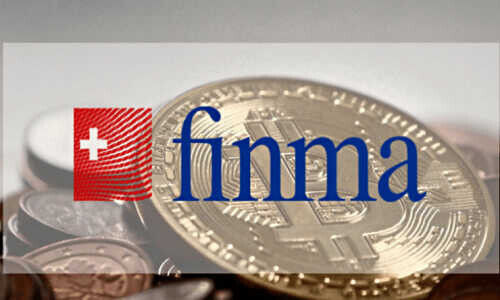Switzerland’s regulator is covertly imposing more stringent anti-money laundering rules on crypto platforms and brokers, finews.com has learned. The move is in response to international pressure as well as reputational damage.
Finma’s message to Swiss providers of crypto transactions is crystal-clear: they are to take additional steps immediately to prevent criminals from using digital assets, according to a letter from Christoph Kluser, who supervises the parabanking system, seen by finews.com.
The missive to «connected intermediaries» to clamp down on risks in their business models is part of a wider fight against money laundering and terrorism financing. The Bern-based regulator views it as «urgently necessary» to take risk-mitigating measures.
The pressing tone relates to Finma’s lowering its threshold for which intermediaries need to identify their clients in bitcoin and other cryptocurrency transactions: the Swiss regulator is now applying this rule to business from 1,000 Swiss francs ($1,082) per month, according to the letter.
Industry Surprised
This is a more stringent approach than Finma takes with fiat transactions, where financial intermediaries are required to identify their clients from 5,000 francs upwards on currency trades and 15,000 francs on all other cash transactions.
The move took the Swiss crypto industry largely by surprise because it seems a departure from the regulator’s declared technology-agnostic «same risks, same rules» approach. The Financial Action Task Force, or FATF, recently updated two-year-old guidance on digital assets.
Room For Interpretation
Finma lowered the threshold for crypto transactions to 1,000 francs at the beginning of this year, following a consultation with industry. The latest measure to apply this as a monthly metric is being carried out without consulting outside.
The regulator considers the latest measure as a clarification, though crypto providers view it as a dramatic infringement of their business models. Money laundering rules don’t typically refer to individual transactions but those «which appear linked» to each other.
This allows room for interpretation in their application. The relevant Swiss law – article 51a of money laundering law which deals with virtual assets – also doesn’t make clear if the threshold applies to 1,000 francs per client per day or monthly.
Drug Payments Via Crypto
The difference between the two is noteworthy: a more generous interpretation would mean that a client can buy and sell as much as 30,000 francs in crypto per month without identifying themselves – vs 1,000 francs per month in the more stringent view. Finma's measure imposes the latter, stricter view on self-regulating crypto firms.
Finma’s order aims to clamp down on bitcoin ATMs, which according to the regulator are frequently used by drug dealers as payment systems. The measure doesn’t change money laundering law, but Finma is seeking to pre-empt any regulatory arbitrage resulting in different self-regulating organizations, it said.



































